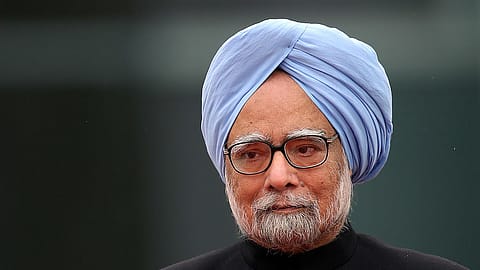Manmohan Singh—A man of rare qualities
He leaves behind a legacy that is perhaps quite different from what it was perceived.

Dr. Manmohan Singh made a farsighted comment in January 2014, amid an orchestrated and widely publicised campaign called ‘India Against Corruption,’ that was helmed by corporate interests and significantly fomented by a media, that was doing more than reporting. He said history would be gentler and kindlier to him. Dr. Singh soon demitted the office of prime minister, having lost the general elections that followed in May. He may have sensed the outcome of the polls, five months in advance, and also had some inkling of what was likely to transpire in India in the ten years, between his departure from Race Course Road and his sad demise.
He leaves behind a legacy that is perhaps quite different from what it was perceived. History is hardly going to describe him as an accidental Prime Minister, although he himself had once remarked he was not only that, but also an accidental Finance Minister. What is likely to stand out in sharp relief is his attachment and assiduous commitment to the principles of Nehruism during his lifetime. In other words, belief and the nurture of strong institutions, an unrestrained commitment to secularism, trust in a humane growth model long before it became fashionable, the balancing of market-based development with prudent regulation and an abiding conviction in the primacy of national interest while pushing integration with the global economy.
Dr. Singh did not undermine or belittle any role that he essayed (there were many) during his long and illustrious career. Whether it was as chief economic advisor, as the governor of the Reserve Bank of India, as finance minister and finally as the prime minister, to each role he brought a rare erudition, knowledge, scholarship, wisdom and above all, humanity and humility. He served society, not individuals. It is quite facile to assert that Dr. Singh changed his views in 1991 to embrace liberalisation because India was forced to do so by the IMF. Nothing could be further from the truth. Dr. Singh always stood for greater engagement with the global economy, for in his book, it was the only way that exports could grow. It is all explained in his PhD thesis awarded in 1962 under the supervision of Professor IMD Little from Oxford University. Only in the realm of imagination can Dr. Singh be described as a protectionist or someone who could be forced to embrace a policy he did not endorse. His conviction and security were based on his personal integrity and the realisation he was working in the best interests of a vast aspirational population.
Assessments of his legacy will draw inevitable comparisons with what happened in the aftermath of his leaving office along with other defining moments since India’s independence in 1947. His handling of economic crises at home and attenuating the impacts of such crises that had offshore origins such as in 2008 will occupy pride of place in defining his formidable legacy. He defended and promoted economic and political freedom, condemned economic concentration and presided over a period of sharp decline in poverty during 2004-09, widely recognised as the golden period of India’s growth. One category, in which he is likely to be peerless among great leaders not only in India but also globally is personal decency. This personality trait helped not only maintain but enhance the dignity of the high offices he occupied. Not in action, nor in words did he ever compromise decent behaviour, whatever the provocation. History will be forced to acknowledge that leadership and human decency are not paradoxes, even in the presence of deep political divisions.
Kathuria is Dean of the School of Humanities and Social Sciences and Professor of Economics at Shiv Nadar University. Views are personal.